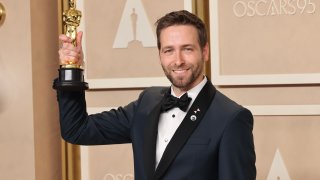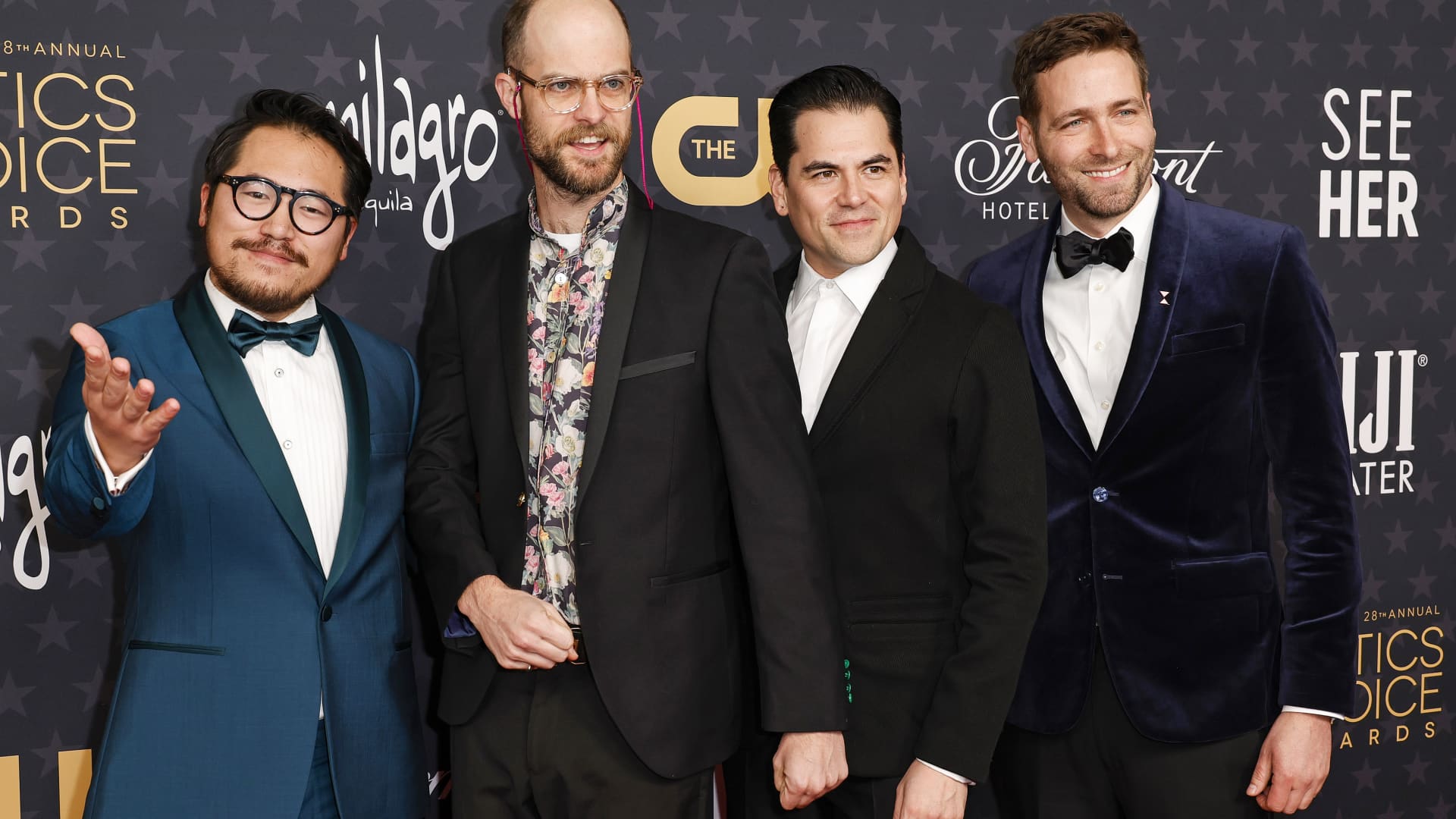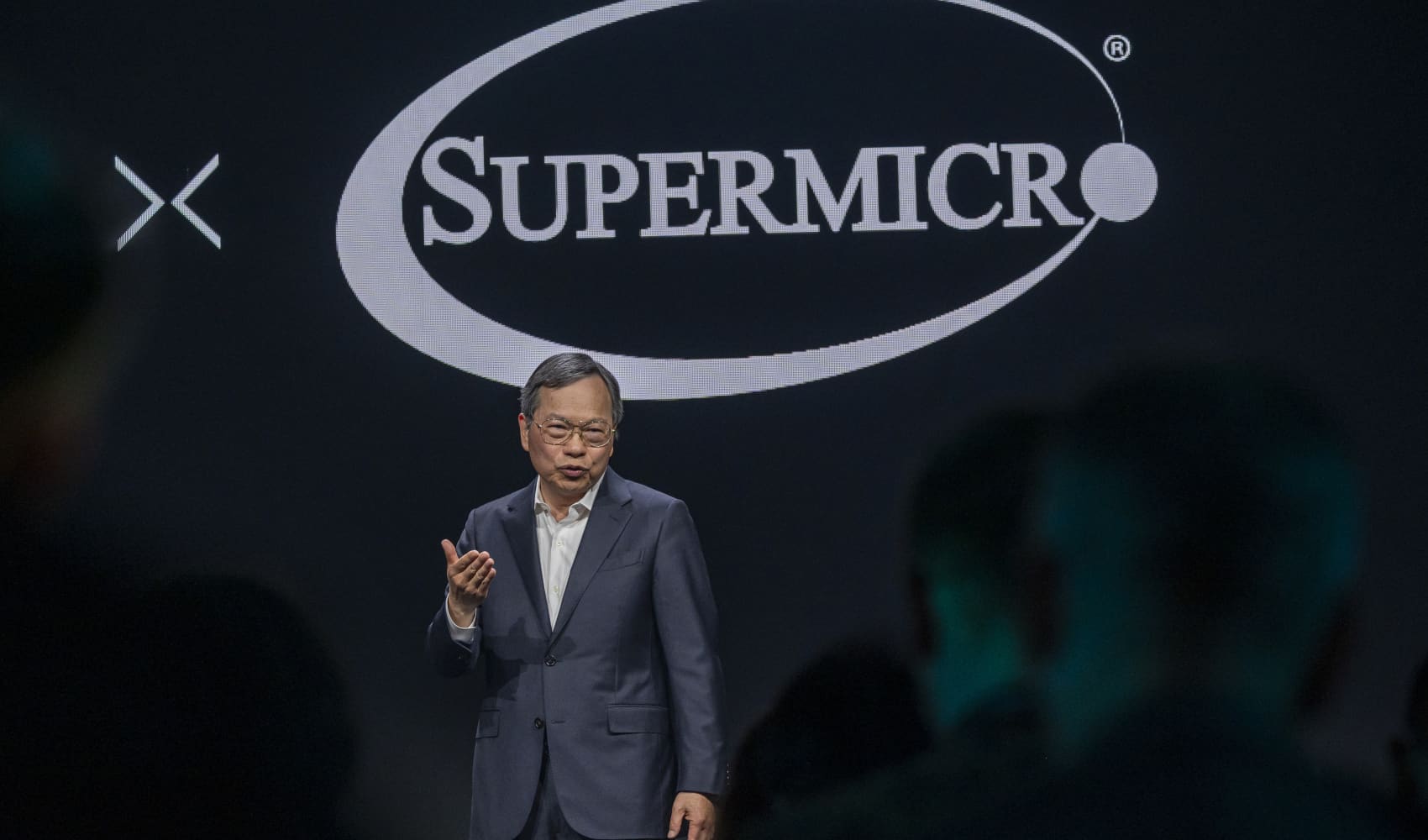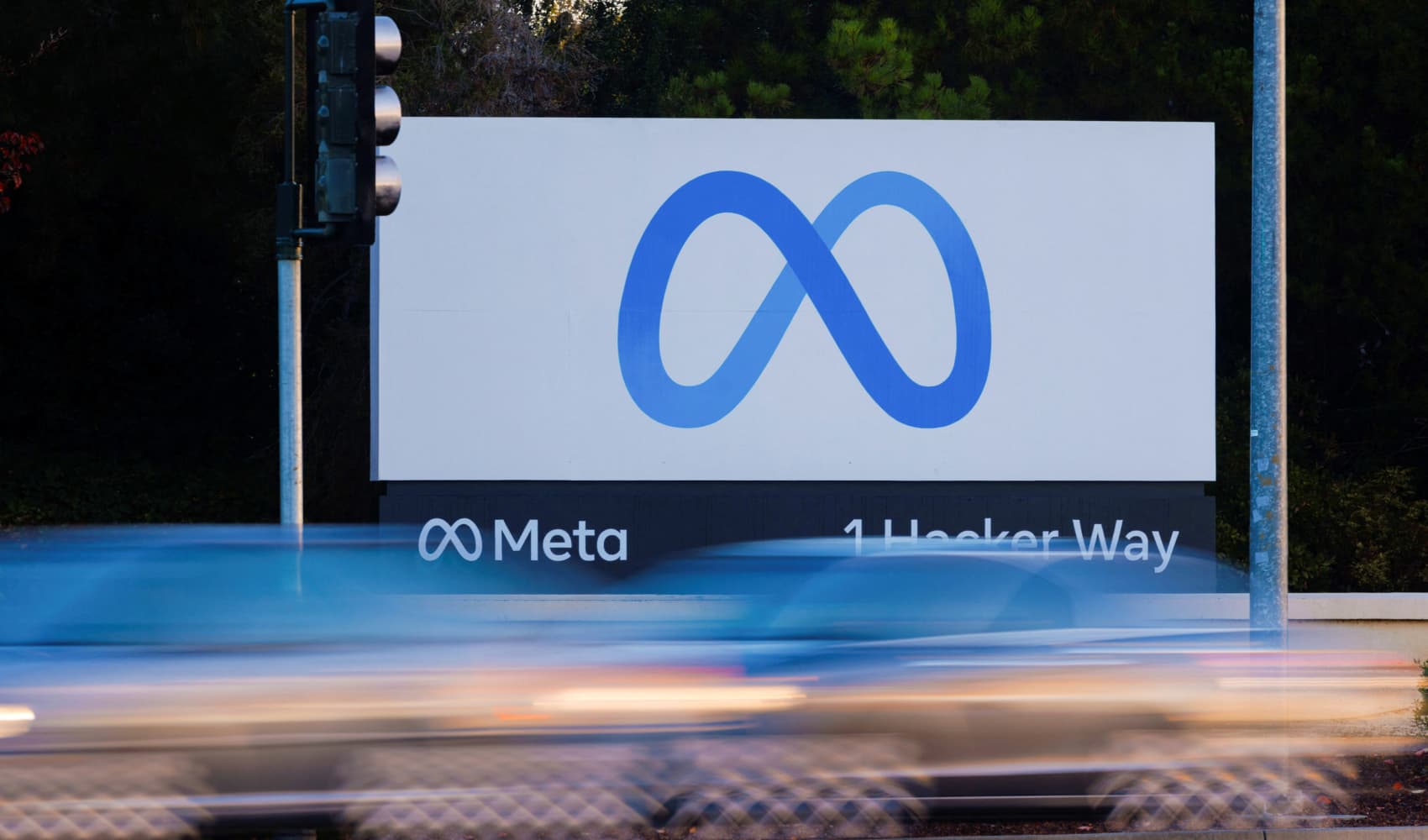
Paul Rogers never planned on being here.
The Oscar-winning editor of "Everything Everywhere All at Once" didn't get into the entertainment industry with aspirations of one day standing on stage at the Academy Awards.
"That's not how I saw my career going," Rogers tells CNBC Make It. "The type of films and work I'm interested in didn't seem like it fit that narrative."
Instead, he says that he started making films in high school while putting off schoolwork.
Get Boston local news, weather forecasts, lifestyle and entertainment stories to your inbox. Sign up for NBC Boston’s newsletters.
"It was a way of avoiding writing a paper or doing other kinds of projects," Rogers says. "It was fun to hang out with my buddies and do something silly."
But Rogers quickly found he had a knack for it and ended up attending film school at the now-defunct College of Santa Fe. That's where he realized he had a passion for film editing – the process of putting a film's footage together into a finished product.
Money Report
"Every time I would make something, I would kind of be impatient and frustrated through the production process, just waiting to get to the edit, because that was where I felt like I had the most fun and all my ideas could come pouring out," he says.
By the time his senior year rolled around, Rogers was receiving requests from other student filmmakers to edit their films.
"I realized you don't have to just work on your own stuff, you could edit for other people," he says. "Which made the lightbulb go off of 'I think maybe I could get paid to do this.'"
Since then, Rogers has enjoyed a widely varied career, and has graduated from editing on an old school Steenbeck to using Adobe Premiere Pro.
He spent years in his home state of Alabama editing documentaries for public television before eventually moving to Los Angeles where he met "Everything Everywhere" directors Dan Kwan and Daniel Scheinert.
In 2014, the three were responsible for the music video for the hit song "Turn Down for What," which has been viewed over 1 billion times on YouTube, and most recently teamed up for "Everything Everywhere All at Once," which pulled in more than $100 million at the box office and won seven Academy Awards – including for Rogers' editing and the Daniels' directing.
"We never in our wildest dreams thought it was an Oscars type of film," Rogers says. " I mean, it was a joke between us when we cut the butt plug fight scene of 'oh, yeah, this scene is for the Oscar voters for sure.'"
Even if he'd never made the trip to Hollywood and ended up winning an Oscar, Rogers is confident he'd be happy with the way his career turned out.
"I like to think that if I stayed at public television in Alabama I would be just as happy and satisfied with my career," he says. "I don't think that there's one recipe for success. If you can earn a paycheck and support yourself and your family if you have one, that is the definition of success in this industry."
Rogers sat down with CNBC Make It to discuss how he changed his work habits while editing the film during the height of COVID-19 lockdowns and how the Daniels' approach to filmmaking helped him do the best work of his career.
How directors Dan Kwan and Daniel Scheinert fostered a friendly and creative atmosphere on set

One thing that Dan and Daniel have always valued is their relationships with their friends, and they just so happen to be friends with everyone that they work with.
That always seems to come first for them, so even if they need to push for a late night or a tough day, they're very conscientious and thoughtful and sensitive to the needs of their crew and their collaborators.
In general, they don't have a "film comes first" mentality, they have a "people come first" mentality. And if the film is harming anyone in any way then they will absolutely push that aside to take care of their friends.
I think I prided myself for years and years on being the hardest worker in the room and working the longest hours. And I'm sure it contributed to positive things in my career, but it definitely did not contribute to positive things in my life and my relationships. This film helped me kind of start a different journey towards a relationship with my work and has really paid great dividends.
There's a positive vibe to this film. Everything from the production design to the performances to the camera work to the editing, and that's no accident. It really starts with Dan and Daniel's ethos of kindness.
Working on "Everything Everywhere All at Once'' from home during pandemic lockdowns
I used to be the type of person who would be constantly thinking about a film during off-hours, even in the shower and in bed.
This time, because of the realities of the lockdown and my life, I very consciously didn't do that. When I was with my family or when I wasn't working, I wouldn't let a thought of the film into my head. And what it led to is a kind of excitement mentally and physically and psychologically to jump back into the film, versus the feeling of 'gosh, I've been circling this thing in my head all day anyways and now I have to sit down and work on it,' which can be kind of exhausting.
And so every day when I would finally get to sit down and work on the film, I was excited. There were surprises. And it was like this exhilarating experience because of this really extreme separation mentally, between my life and my work. And I think that that was a big reason that I was able to have the endurance to work on this thing for 11 months.
But I've found having a more intense and intentional separation between work and life has helped me have more enthusiasm and energy for my work.
This interview has been edited for length and clarity. The story has been updated to note that Rogers won the Academy Award for Best Editing on March 12.
Get CNBC's free Warren Buffett Guide to Investing, which distills the billionaire's No. 1 best piece of advice for regular investors, do's and don'ts, and three key investing principles into a clear and simple guidebook.
Sign up now: Get smarter about your money and career with our weekly newsletter






